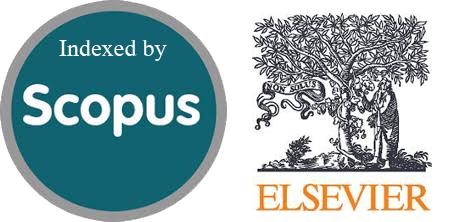Appraising the Role of Pharmacists in Medication Reconciliation at Hospital Discharge: A Field-Based Study
DOI:
https://doi.org/10.54133/ajms.v5i1S.319Keywords:
Clinical pharmacist, Duplication error, Hospital discharge, Iraq, Medication discrepancy, Medication reconciliationAbstract
Objective: To measure the effect of the pharmacist-led medication reconciliation service before hospital discharge on preventing potential medication errors. Methods: This behavioral interventional study took place in a public teaching hospital in Iraq between December 2022 and January 2023. It included inpatients who were taking four or more medications upon discharge from the internal medicine ward and the cardiac care unit. The researcher provided the patients with a medication reconciliation form and reconciliation form (including medication regimen and pharmacist instructions) before discharging them home. Any discrepancies between the patients’ understanding and the actual medication recommendations prescribed by the physician were identified and solved. Results: Fifty inpatients received a pharmacist-led medication reconciliation review before hospital discharge. Out of 50 patients, 44% had a clear understanding of their medications before the intervention. In contrast, 56% of the patients had at least one potential medication error before the reconciliation, which was addressed by the pharmacist's intervention. Approximately two-thirds (89.4%) of the potential medication errors were clinically significant, and 5.3% of these errors were serious. The most frequent potential error that prevented this was duplication (31.5%) (the patient was about to duplicate the same medication from different manufacturers or different medications from the same pharmacological class). Conclusion: Lack of medication reconciliation can cause significant medication errors, which might be serious and cause harm to patients. This study has the potential to shape policies and practices that prioritize medication safety and optimize patient outcomes during transitions of care.
Downloads
References
National Patient Safety Goals® Effective July 2023 for the Hospital Program Goal 2023. Available at: https://www.jointcommission.org/-/media/tjc/documents/standards/national-patient-safety-goals/2023/npsg_chapter_hap_jul2023.pdf
Reeder TA, Mutnick A. Pharmacist- versus physician-obtained medication histories. Am J Health-Sys Pharm. 2008;65(9):857-860. doi: 10.2146/ajhp070292. DOI: https://doi.org/10.2146/ajhp070292
Herledan C, Baudouin A, Larbre V, Gahbiche A, Dufay E, Alquier I, et al. Clinical and economic impact of medication reconciliation in cancer patients: a systematic review. Support Care Cancer. 2020;28:3557-3569. doi: 10.1007/s00520-020-05400-5. DOI: https://doi.org/10.1007/s00520-020-05400-5
Singh D, Fahim G, Ghin HL, Mathis S. Effects of pharmacist-conducted medication reconciliation at discharge on 30-day readmission rates of patients with chronic obstructive plmonary disease. J Pharm Pract. 2021;34(3):354-359. doi: 10.1177/0897190019867241. DOI: https://doi.org/10.1177/0897190019867241
Studer H, Imfeld-Isenegger TL, Beeler PE, Ceppi MG, Rosen C, Bodmer M, et al. The impact of pharmacist-led medication reconciliation and interprofessional ward rounds on drug-related problems at hospital discharge. Int J Clin Pharm. 2023;45(1):117-125. doi: 10.1007/s11096-022-01496-3. DOI: https://doi.org/10.1007/s11096-022-01496-3
Bouchand F, Leplay C, Guimaraes R, Fontenay S, Fellous L, Dinh A, et al. Impact of a medication reconciliation care bundle at hospital discharge on continuity of care: A randomised controlled trial. Int J Clin Pract. 2021;75(8). doi: 10.1111/ijcp.14282. DOI: https://doi.org/10.1111/ijcp.14282
Patel E, Pevnick JM, Kennelty KA. Pharmacists and medication reconciliation: a review of recent literature. Integr Pharm Res Pract. 2019;8:39-45. doi: 10.2147/iprp.s169727. DOI: https://doi.org/10.2147/IPRP.S169727
National Patient Safety Goals® Effective January 2022 for the Hospital Program, 2022. Available at: https://www.jointcommission.org/-/media/tjc/documents/standards/national-patient-safety-goals/2022/npsg_chapter_hap_jan2022.pdf
Catalano K. JCAHO'S National Patient Safety Goals 2006. J Perianesth Nurs. 2006;21(1):6-11. doi: 10.1016/j.jopan.2005.11.005. DOI: https://doi.org/10.1016/j.jopan.2005.11.005
Medicines optimization: the safe and effective use of medicines to enable the best possible outcomes NICE guideline. 2015. Available at: https://www.nice.org.uk/guidance/ng5/resources/medicines-optimisation-the-safe-and-effective-use-of-medicines-to-enable-the-best-possible-outcomes-pdf-51041805253
Champion HM, Loosen JA, Kennelty KA. Pharmacy students and pharmacy technicians in medication reconciliation: A review of the current literature. J Pharm Pract. 2019;32(2):207-218. doi: 10.1177/0897190017738916. DOI: https://doi.org/10.1177/0897190017738916
Karaoui LR, Chamoun N, Fakhir J, Abi Ghanem W, Droubi S, Diab Marzouk AR, et al. Impact of pharmacy-led medication reconciliation on admission to internal medicine service: Experience in two tertiary care teaching hospitals. BMC Health Serv Res. 2019;19(1). doi: 10.1186/s12913-019-4323-7. DOI: https://doi.org/10.1186/s12913-019-4323-7
Jabri AM, Assad HC, Al-Jumaili AA. Pharmacist role to enhance the prescribing of hospital discharge medications for patients after heart attack. Saudi Pharm J. 2020;28(4):473-479. doi: 10.1016/j.jsps.2020.02.009. DOI: https://doi.org/10.1016/j.jsps.2020.02.009
Maher RL, Hanlon J, Hajjar ER. Clinical consequences of polypharmacy in elderly. Exp Opin Drug Safe. 2014;13:57-65. doi: 10.1517/14740338.2013.827660. DOI: https://doi.org/10.1517/14740338.2013.827660
Rollason V, Vogt N. Reduction of polypharmacy in the elderly a systematic review of the role of the pharmacist. Drugs Aging. 2003;20. doi: 10.2165/00002512-200320110-00003. DOI: https://doi.org/10.2165/00002512-200320110-00003
Climente-Martí M, García-Mañón ER, Artero-Mora A, Jiménez-Torres NV. Potential risk of medication discrepancies and reconciliation errors at admission and discharge from an inpatient medical service. Ann Pharmacother. 2010;44(11):1747-1754. doi: 10.1345/aph.1p184. DOI: https://doi.org/10.1345/aph.1P184
Cornish PL, Knowles SR, Marchesano R, Tam V, Shadowitz S, Juurlink DN, et al. Unintended medication discrepancies at the time of hospital admission. Arch Intern Med. 2005;165(4):424-429. doi: 10.1001/archinte.165.4.424. DOI: https://doi.org/10.1001/archinte.165.4.424
For Healthcare Research A. Medications at Transitions and Clinical Handoffs (MATCH) Toolkit for Medication Reconciliation. Available at: https://www.ahrq.gov/patient-safety/settings/hospital/match/index.html
Classen DC, Pestotnik SL, Evans RS, Lloyd JF, Burke JP. Adverse drug events in hospitalized patients. Excess length of stay, extra costs, and attributable mortality. JAMA. 1997;277(4):301-306. PMID: 9002492. DOI: https://doi.org/10.1001/jama.277.4.301
Folli HL, Poole RL, Benitz WE, Russo JC. Medication error prevention by clinical pharmacists in two children's hospitals. Pediatrics. 1987;79(5):718-722. PMID: 3575028. DOI: https://doi.org/10.1542/peds.79.5.718
Daliri S, Bouhnouf M, van de Meerendonk HWPC, Buurman BM, Scholte op Reimer WJM, Kooij MJ, et al. Longitudinal medication reconciliation at hospital admission, discharge and post-discharge. Res Social Adm Pharm. 2021;17(4):677-684. doi: 10.1016/j.sapharm.2020.05.022. DOI: https://doi.org/10.1016/j.sapharm.2020.05.022
Sebaaly J, Parsons LB, Pilch NA, Bullington W, Hayes GL, Easterling H. Clinical and financial impact of pharmacist involvement in discharge Medication reconciliation at an academic medical center: A prospective pilot study. Hosp Pharm. 2015;50(6):505-513. doi: 10.1310/hpj5006-505. DOI: https://doi.org/10.1310/hpj5006-505
Phatak A, Prusi R, Ward B, Hansen LO, Williams MV, Vetter E, et al. Impact of pharmacist involvement in the transitional care of high-risk patients through medication reconciliation, medication education, and postdischarge call-backs (IPITCH Study). J Hosp Med. 2016;11(1):39-44. doi: 10.1002/jhm.2493. DOI: https://doi.org/10.1002/jhm.2493
Abbood SK, Assad HC, Al-Jumaili AA. Pharmacist intervention to enhance postoperative fluid prescribing practice in an Iraqi hospital through implementation of NICE guideline. Pharm Pract (Granada). 2019;17(3). doi: 10.18549/pharmpract.2019.3.1552. DOI: https://doi.org/10.18549/PharmPract.2019.3.1552
Al-Jumaili AA, Al-Rekabi MD, Doucette W, Hussein AH, Abbas HK, Hussein FH. Factors influencing the degree of physician–pharmacist collaboration within Iraqi public healthcare settings. Int J Pharm Pract. 2017;25(6):411-417. doi: 10.1111/ijpp.12339. DOI: https://doi.org/10.1111/ijpp.12339
Caleres G, Modig S, Midlöv P, Chalmers J, Bondesson Å. Medication discrepancies in discharge summaries and associated risk factors for elderly patients with many drugs. Drugs Real World Outcomes. 2020;7(1):53-62. doi: 10.1007/s40801-019-00176-5. DOI: https://doi.org/10.1007/s40801-019-00176-5
Mergenhagen KA, Blum SS, Kugler A, Livote EE, Nebeker JR, Ott MC, et al. Pharmacist- versus physician-initiated admission medication reconciliation: impact on adverse drug events. Am J Geriatr Pharmacother. 2012;10(4):242-250. doi: 10.1016/j.amjopharm.2012.06.001. DOI: https://doi.org/10.1016/j.amjopharm.2012.06.001
Khazal AA, Jamal MY. Pharmacist intervention to address drug related problems in patients with decompensated liver cirrhosis. Al-Kindy Coll Med J. 2023;19(1):121-126. doi: 10.47723/kcmj.v19i1.888. DOI: https://doi.org/10.47723/kcmj.v19i1.888
Al-Jumaili AA, Mohammed ZA, Yawuz MJ, Ahmed KK. Exploring work satisfaction and characteristics of Iraqi pharmacist workforce. Braz J Pharm Sci. 2022;58. doi: 10.1590/s2175-97902022e19929%20. DOI: https://doi.org/10.1590/s2175-97902022e19929
Al-Jumaili AA, Sherbeny F, Elhiny R, Hijazi B, Elbarbry F, Rahal M, et al. Exploring job satisfaction among pharmacy professionals in the Arab world: a multi-country study. Int J Pharm Pract. 2022;30(2):160-168. doi: 10.1093/ijpp/riac011. DOI: https://doi.org/10.1093/ijpp/riac011
Al-Jumaili AA, Al-Rekabi MD, Sorofman B. Evaluation of instruments to assess health literacy in Arabic language among Iraqis. Res Social Adm Pharm. 2015;11(6):803-813. doi: 10.1016/j.sapharm.2015.02.002. DOI: https://doi.org/10.1016/j.sapharm.2015.02.002
Mosah HA, Sahib AS, Al-Biati HA. Evaluation of Medication Errors in Hospitalized Patients. Al-Kindy Coll Med J. 2012;8(2):75-79.
Michaelsen M, McCague P, Bradley C, Sahm L. Medication reconciliation at discharge from hospital: A systematic review of the quantitative literature. Pharmacy. 2015;3(2):53-71. doi: 10.3390/pharmacy3020053. DOI: https://doi.org/10.3390/pharmacy3020053
Alanazi AS, Awwad S, Khan TM, Asdaq SMB, Mohzari Y, Alanazi F, et al. Medication reconciliation on discharge in a tertiary care Riyadh Hospital: An observational study. PLoS One. 2022;17(3):e0265042. doi: 10.1371/journal.pone.0265042. DOI: https://doi.org/10.1371/journal.pone.0265042
Moriarty F, Bennett K, Fahey T. Fixed-dose combination antihypertensives and risk of medication errors. Heart. 2019;105(3):204-209. doi: 10.1136/heartjnl-2018-313492. DOI: https://doi.org/10.1136/heartjnl-2018-313492

Downloads
Published
How to Cite
Issue
Section
License
Copyright (c) 2023 Al-Rafidain Journal of Medical Sciences ( ISSN 2789-3219 )

This work is licensed under a Creative Commons Attribution-NonCommercial-ShareAlike 4.0 International License.
Published by Al-Rafidain University College. This is an open access journal issued under the CC BY-NC-SA 4.0 license (https://creativecommons.org/licenses/by-nc-sa/4.0/).











